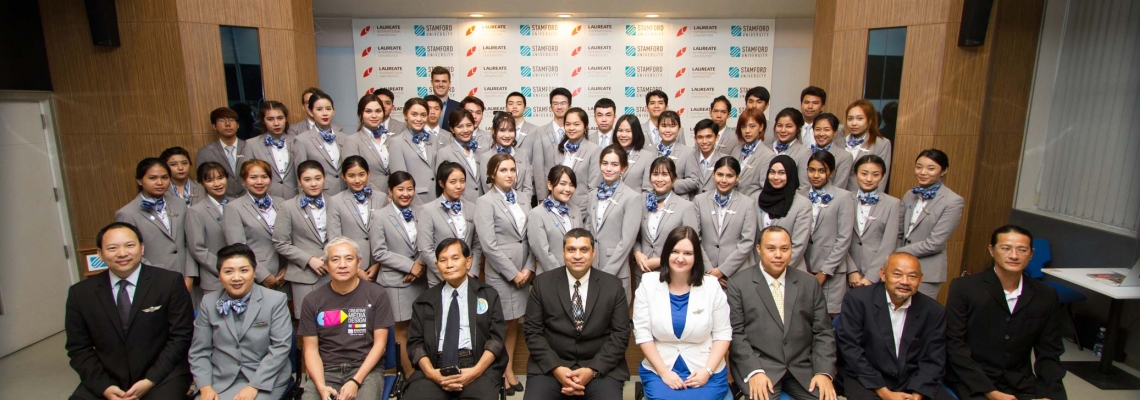
Unlocking the secrets to a career in the sky
An interview with Harris, Stamford ABM Senior Student.

“When I grow up, I want to be a pilot or a flight attendant.” These may be the ambitions of many young people who dream of being part of the aviation industry. There are a lot more careers available in air transportation that these two options however. Without people fulfilling a variety of jobs and functions to ensure mechanical and operational efficiency, airplanes would not be able to fly at all. These essential positions are incredibly varied and include: air traffic controller, flight dispatcher, ground attendant, engineer, operations agent, administrative support, flight instructor, and more.
Why Study at Stamford?
I enjoyed studying English when I was in school and so I looked for universities that offered international programs. I considered many places, including Stamford International University, when deciding where would be the best place that suited me. I finally chose to study at Stamford. One reason was because when I entered the university, it was as if I had fallen into another world, like I was not in Thailand. It was a new experience for me, like I was studying abroad.
Year 1 to Year 3 Overview
In Year 1 we studied Airline Business Management (ABM 201) subjects where we learned general things about the aviation industry. In the years that followed we studied subjects relating to aviation, such as communication or aircraft design, more in-depth.
During Year 2, for anyone interested in becoming a pilot, there’s a course for us to learn how to fly an ultralight aircraft. Stamford has signed a contract with the Light Aircraft for Leisure Association Flying Club (LAAF) which provides ultralight aircraft pilot training for students. Students can obtain an ultralight pilot license after they have fulfilled the course requirements.
In Year 3 we studied quite hard. The subjects focus on Management – for example: Risk Management, Quality Assurance of Airline business, ISO quality measurement etc.
What makes studying Airline Business Management at Stamford different?
The first thing is that Aviation is a matter of language. Working in the international airline business means working with people from all over the world. Language skills are essential. One of Stamford’s key strengths is building language proficiency. Additionally, the instructors have direct experience from the industry. For example, this term’s subject ‘In-Flight Management’ has a teacher from Australia. I think learning from those who have direct experience makes it easy to understand and visualize .
Internship
I went to a Job fair held at the university and successfully applied for an internship as a Flight Dispatcher at Bangkok Flight Services at Suvarnabhumi Airport. A flight dispatcher is sometimes called in Thai “The Office Pilot”. Before the flight, a flight dispatcher summarizes the details of the flight for pilots and discusses with the pilot what would be the safest route (considering weather conditions and fuel consumption).
What are the highlights of the Light Aircraft Flying training at Stamford?
Light Aircraft simply means a small plane. We learned the basics of flying, such as how a plane is able to fly, the effect of weather and other factors necessary for flight. The duration of the course is relatively short and the cost is not very high compared to CPL training. (CPL stands for Commercial Pilot License.)
This course opens the experience of flying and grants an insight into whether being a pilot is something we would really like to be. We learned our potential and our limitations. Even if we decide not to become a pilot, we have flight operation knowledge and can work in other positions like a Flight Dispatcher, Air Traffic Controller (ATC) and other ground operation jobs at
